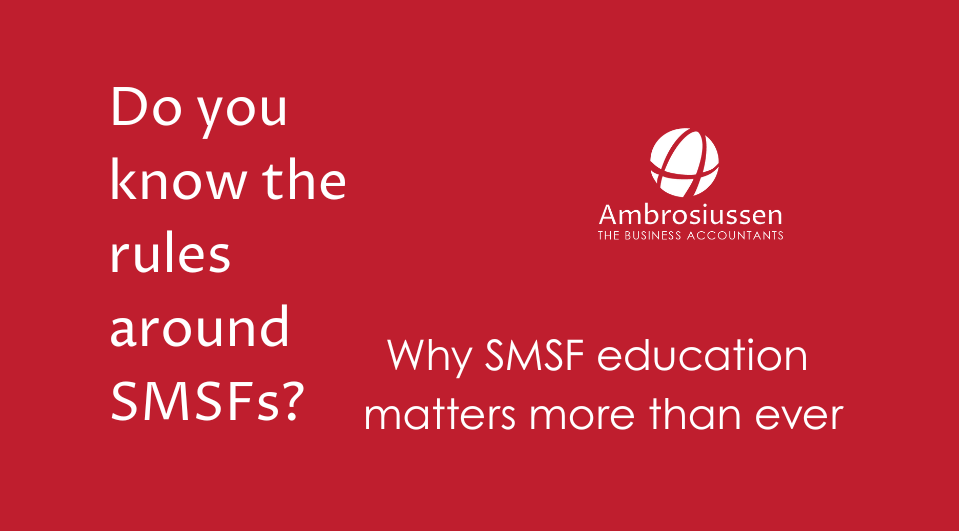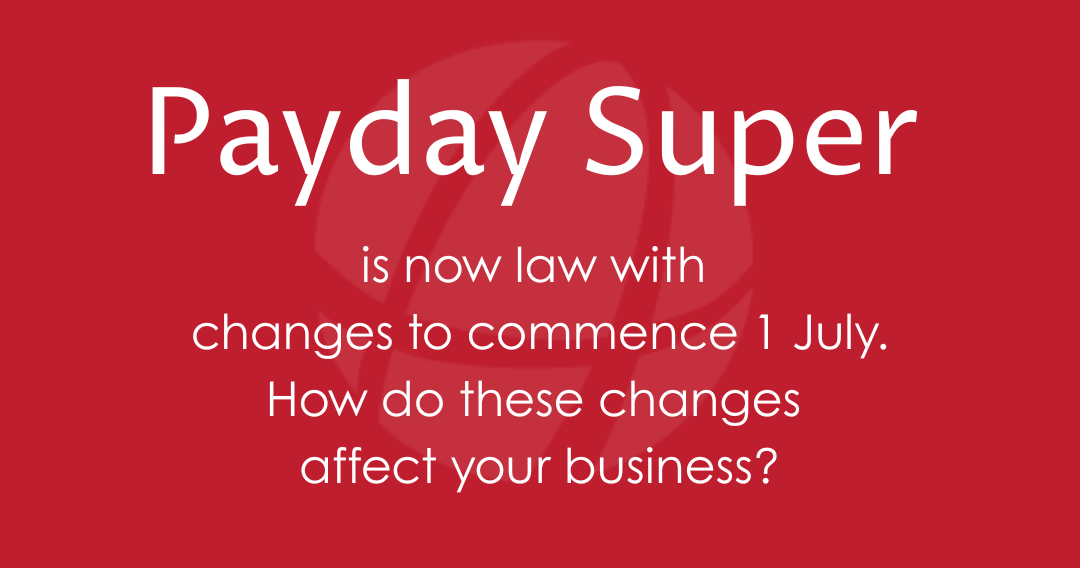Payday Super: What Small Business Owners Need to Know
Sam Wright
January 16, 2025
Big changes are planned by the Federal Government to the way employers handle superannuation payments, and if you’re a small business owner, it’s time to get prepared.
The new ‘payday super’ system is set to transform how superannuation guarantee contributions are made. Here’s everything you need to know to stay ahead of the game.
What Is Payday Super?
From 1 July 2026, employers will need to pay superannuation guarantee contributions on the same day as salary and wages, replacing the current quarterly payment schedule. This shift aims to reduce the estimated $3.4 billion gap between what employees are owed and what’s been paid.
Announced in the 2023-24 Federal Budget, payday super is not yet law, but Treasury has already released guidance to help employers prepare.
How Will Payday Super Work?
Under the new system:
- Superannuation guarantee payments will need to be paid on payday, so they are received in an employee’s super account within 7 calendar days of payday.
- Exceptions include:
- New employees: Superannuation guarantee payments will be due after their first two weeks of work.
- Small or irregular payments outside normal pay cycles.
Since many businesses already use single-touch payroll systems for salary and wage reporting, payday super is expected to integrate into these existing systems. However, there will likely be updates to these systems to collect data about ordinary time earnings.
The Cashflow Challenge
One significant change for employers will be the impact on cash flow. Currently, businesses can hold superannuation guarantee amounts (currently 11.5%, and from July 2025 it will increase to 12%) until 28 days after the end of the quarter. With payday super, this amount will be due on payday, requiring tighter cash flow management.
Late Payments: The Consequences
Penalties for late or unpaid superannuation guarantee amounts are already very tough and they will remain so under payday super. Here’s what happens if payments are late under the proposed changes:
- Superannuation Guarantee Charge calculation:
- Outstanding shortfall amount: Based on ordinary time earnings only, not total salaries and wages as is currently the case.
- Late payment penalty interest: Daily interest on the shortfall amount at the general interest charge rate, compounding daily.
- Administrative penalty: A penalty of up to 60% of the shortfall amount, reduced for voluntary disclosures. This reduction applies when employers proactively disclose any super that wasn’t paid in full and on time.
- Ongoing general interest charge: Applied to outstanding amounts, including penalties.
- Additional penalty: Up to 50% of unpaid amounts after 28 days of the notice of assessment.
2. Tax Deductibility:
- Unlike the current charge, the proposed charge (the unpaid superannuation - excluding penalties and interest) will be tax deductible if paid within 28 days.
Missed payments can quickly spiral into significant liabilities.
The Retirement of the ATO Small Business Superannuation Clearing House
The Small Business Superannuation Clearing House will be retired from 1 July 2026. Many small businesses currently rely on this platform, so its decommissioning will introduce some changes to the process for those businesses. Many small business accounting software packages, like MYOB and Xero, have clearing house capability.
Preparing for the Transition
While payday super is not yet law, it is essential to start planning:
- Review your payroll systems to ensure they are ready to handle more frequent superannuation guarantee payments. If you are currently using the ATO's Small Business Superannuation Clearing House, start thinking about some options for a clearing house to use.
- Assess your cash flow and identify potential challenges that require changes like customer payment terms or an overdraft facility.
- Stay informed as further details emerge.
Final Thoughts
Change can be daunting, but by preparing early you can ensure a smooth transition and avoid costly penalties. Start planning now to ensure your business is ready for the payday super era.
*This article was written and published in January 2025. The information provided is current at the time of publication.




